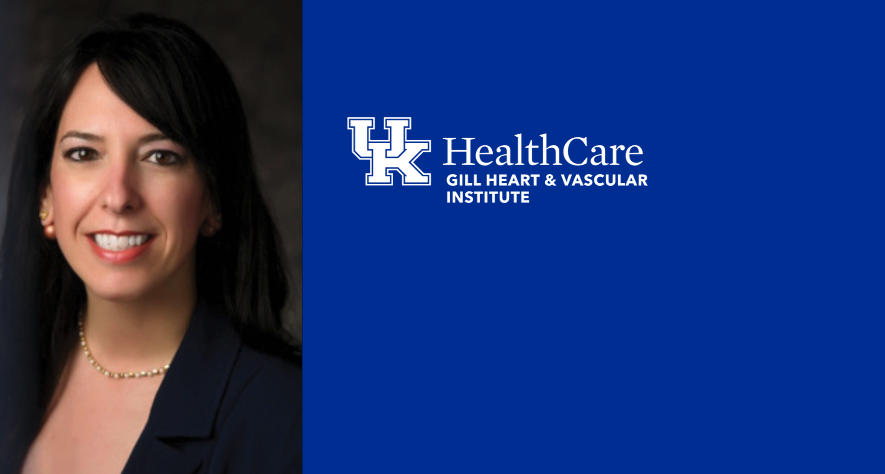UK expert discusses her work in cardiovasular research

In a recent Q&A, Analia S. Loria-Kinsey, PhD, associate professor of pharmacology and nutritional sciences, discussed how she contributes to cardiovascular research and how she prepares the learners she mentors to excel in their careers.
What are your current roles, and what specifically do you do around cardiovascular research?
I am an associate professor in the College of Medicine Department of Pharmacology and Nutritional Sciences, where I serve as the Diversity Ambassador and director of the seminar series course.
Also, I am the Healthy Hearts for Women Annual Symposium co-chair (along with Dr. Frederique Yiannikouris), an event focused on raising awareness about cardiovascular disease in women highlighting top-notch pre-clinical and clinical research trends. At the college level, I participate in several advisory committees and serve as the WIMS Program Committee co-chair.
What is your favorite part about working in medicine?
Being a biomedical basic investigator, the challenge to design models or approaches to address unanswered questions and contribute to understanding mechanisms of non-traditional risk factors for human cardiovascular and metabolic disease.
As a woman in medicine, what obstacles have you overcome through the course of your career?
You would think that having the support of other women would be implicit, but it is not always the case. I think we need more women that advocate for other women playing an active role inserting themselves in the system. In this sense, here at UK we are lucky to have very supportive successful women.
The other obstacle is having little children during key periods of your career that are stressful. Somehow, you figure out how to refocus the priorities to perform in the personal and professional plane. The support in your work environment plays a critical role in this process.
In addition to being a woman, I am also Hispanic and a “foreigner,” so when I feel like things are different for me, I am not sure which of these factors, or the combination of them, plays a role.
As a Hispanic, I have aspects of my culture that contrast deeply with my everyday interplay with people and situations. Do they have to understand me, or I have to understand them? It took me time to get blended culturally, and even if I am still not 100-percent inserted, I learned to interpret comments and actions differently, from another point of view. Also, I took the approach to explain to others why, for me, things may have a different meaning. I feel it is also my responsibility to make others aware about cultural differences and not just expect to be understood.
What are your proudest accomplishments of your career?
I am very proud of where I am today because I enjoy and really love everything I do. This is a result of a long, very complex process for me. It’s exciting to see students return year after year even when they are already in medical school or have a new position just to say ‘hello.’ Also, I enjoy seeing my tenure and promotion dossier and reading some touching letters, publishing experiments that took several years, recruiting a person to perform the most challenging experiments and see the results, reproducing data over the years that makes you feel you are doing things well, being called to serve in the NIH or chair international symposiums, and waking up every morning excited to make things happen.
How are you preparing the next generation of women in medicine to succeed in the medical field?
I don’t personally think that women in the medical field must do anything different than in any other field in which you wish to be successful. Understanding that being a woman is not a “condition,” I mentor many women providing support and direction, but I never focus on the fact that they are a woman or minority when we discuss an approach to reach a goal.
Also, it is important they know there are available resources to report misconduct, microaggressions or unfair situations, and identify the people to reach out to discuss it.
What advice do you have for women entering the medical field?
Make sure that working hard and reaching your goals does not compromise your principles, and you can keep your kindness and genuine personality. Being proactive in any aspect of your career always gives you a plus: start the conversation, send a reminder about a project, follow up on emails, plan in advance your big milestones, identify mentors and self-promote.




